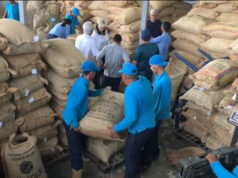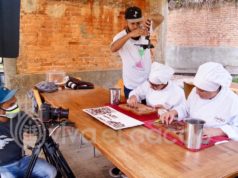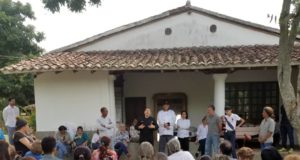By Juan Pablo Crespo
Photos: Liliana Elías
Did you know that cocoa and chocolate were part of the first words that came from Latin America included in the Spanish Royal Academy Dictionary (SRAD)?
Yes, both words appeared in the first compilation made by the institution located in Madrid, Spain. But before entering into details, let’s have some context: In 1713, the main objective set by the SRA was to write a dictionary of our language. “The result of this effort was what today is known as Dictionary of Authorities, including after the definition real quotes from different authors to illustrate its use. It was published in six volumes, between the years 1726 and 1729”, it can be read so in its Introduction on the web version of the SRA.
But what those volumes said when defining cocoa and chocolate?. Let’s see below (we keep the original spelling):
Cocoa: Indian Voice. A fruit smaller than the almond, although thicker and rounder: the delicate, rather cold and moist peel, which toasted and ground in the stone (made for this purpose) is the main material to make chocolate. In some parts of the Indies it serves as a currency to pay the bits and remainders of greater quantities, as well as to complete the games.
Chocolate: A drink made from the paste also named Chocoláte, which is made with cocoa, sugar, and cinnamon (some usually add vanilla and other ingredients) by melting it with the grinder in the corresponding water inside the chocolate pot, and then it is slurped hot or cold. Its etymology is from the Indian word Chocollat.
In his “Natural and Moral History of the Indies” of 1590, the Jesuit Anthropologist José de Acosta already mentioned chocolate, of which he wrote: The main benefit of this cocoa is a beverage that they call Chocolate, which is crazily valued in these lands, and the Spanish die for the black chocolate.
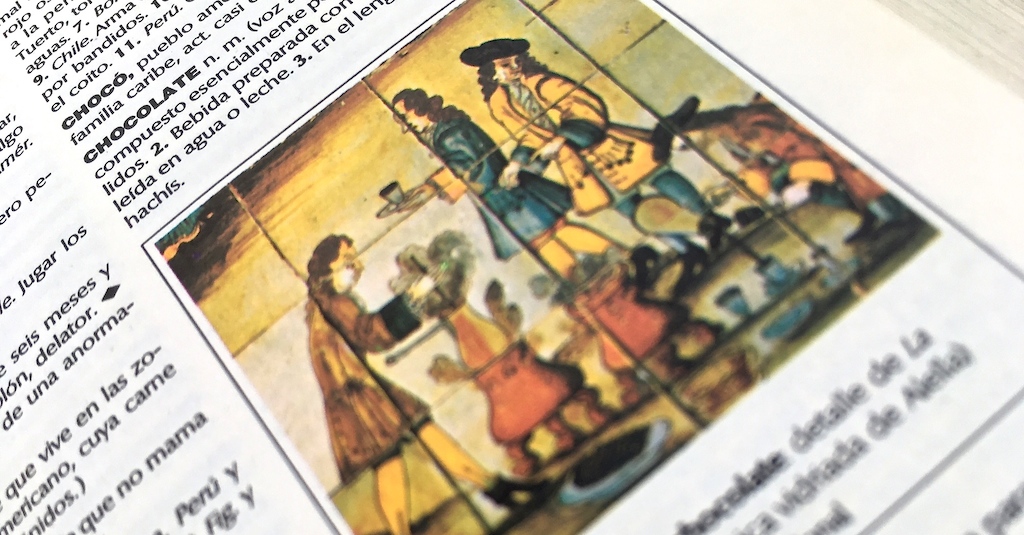
The Spanish naturist (Salamanca) also referred to cocoa as “a fruit smaller than almonds and thicker, which does not taste bad when toasted.
It is noteworthy that in 1780 a new version of that first academic dictionary was published, with the title of Dictionary of the Castilian language, reduced to a volume and without the quotations from the authors. This first serial dictionary recorded 46,000 articles. Now, the latest edition of the Spanish Language Dictionary or the Spanish Royal Academy Dictionary published in 2014 (twenty-third edition) contains 93,111 entries with a total of 195,439 meanings, according to data from the SRA itself. There you can look up the updated definitions of cocoa and chocolate.
With respect to quotations, it is worthy to remark Jose de Costa’s words on chocolate: “it is a crazy thing that in that land they are fond of it and the Spaniards die for the dark chocolate.”
And both yesterday and today, men and women, grown-ups and youngsters, continue to appreciate.
